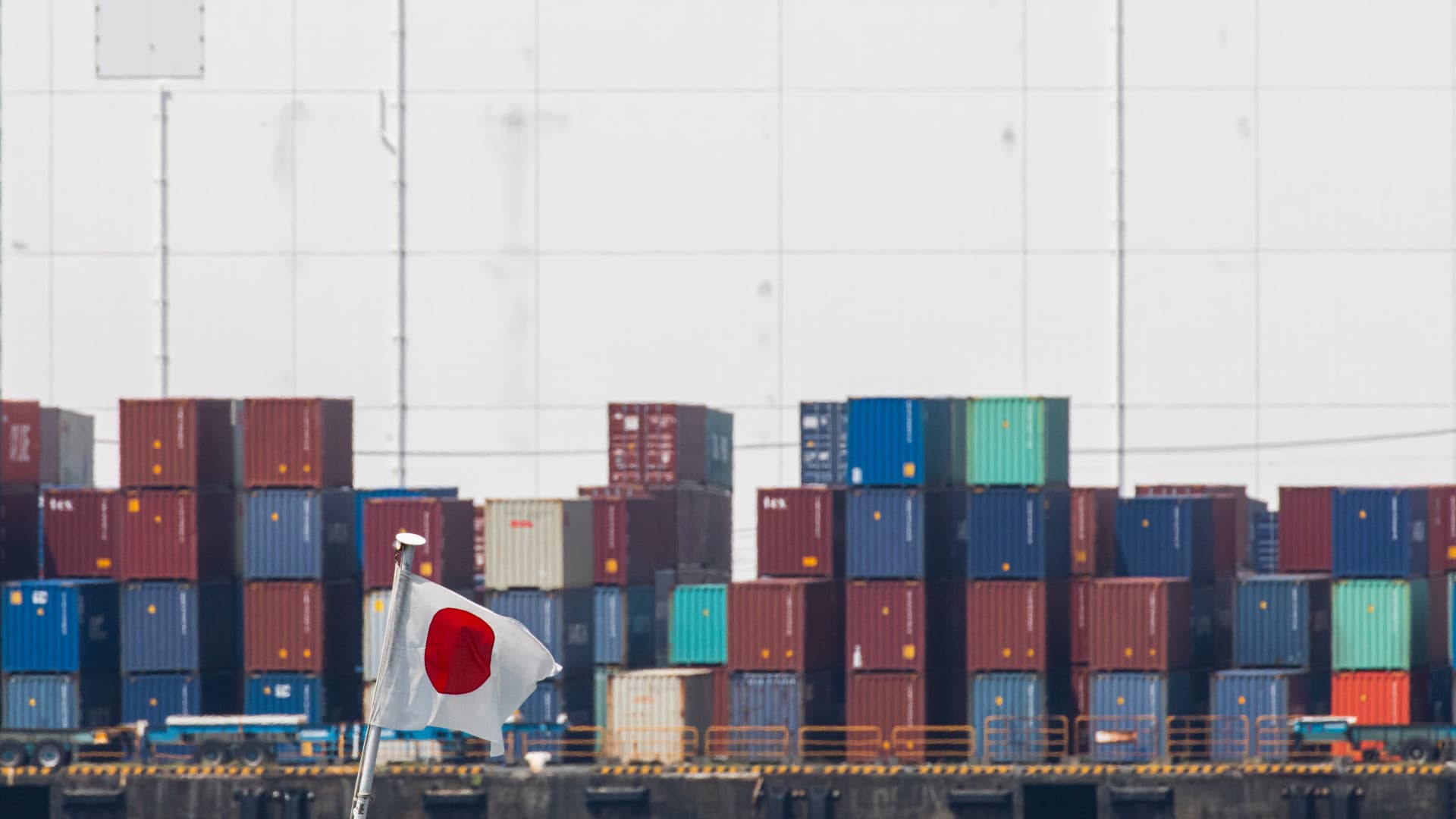The decrease in exports was a reversal of the 0.5% rise expected by economists polled by Reuters, and comes amid a lack of a breakthrough in trade talks with the U.S.
Why it matters
- Japan's export sector is facing significant challenges, which could impact overall economic growth.
- The decline in exports contrasts with previous expectations, highlighting the volatility of international trade.
- Ongoing trade negotiations with the U.S. remain unresolved, raising concerns about future economic relations.
Japan's export figures have taken a turn for the worse, marking a second consecutive month of decline. This downturn is particularly concerning, as it defies the 0.5% increase that economists surveyed by Reuters had anticipated. The failure to achieve a breakthrough in trade discussions with the United States is a significant factor behind this unexpected drop.
In June, Japan's exports saw a decrease of 1.5%, a stark contrast to the forecasts that had predicted a modest rise. This decline is reflective of broader trends in global trade, where various factors including geopolitical tensions and supply chain disruptions are creating uncertainties. The ongoing negotiations with the U.S. have been particularly frustrating for Japanese officials, who have been hoping for more favorable trade terms that could bolster their export economy.
The implications of this export decline are far-reaching. Japan's economy, which heavily relies on its export sector, may face increased pressure as global demand fluctuates. The country has been grappling with an aging population and slow domestic growth, making the need for robust export performance even more critical. The current situation raises concerns about the potential for a recession if these trends continue.
Analysts suggest that the decline in exports could also lead to a ripple effect throughout the economy, affecting various sectors that depend on international trade. Manufacturing, in particular, could see reduced activity as orders from overseas decline. Furthermore, companies that are reliant on exports for their revenue may be compelled to reevaluate their strategies, potentially leading to layoffs or reduced investment in growth initiatives.
The trade talks with the U.S. have been a focal point for Japanese policymakers, who have sought to strengthen economic ties with their American counterparts. However, the lack of progress has left many in Japan feeling uncertain about the future of their export markets. The U.S. remains one of Japan's largest trading partners, and any prolonged standoff could have significant implications for bilateral trade relations.
Japan's government has been proactive in seeking solutions to invigorate its export sector. Initiatives aimed at diversifying export markets and enhancing competitiveness through technology and innovation have been part of the strategy. However, these measures may take time to bear fruit, and the immediate outlook remains challenging.
As the situation evolves, market participants and economists will be closely monitoring export data for any signs of recovery. The upcoming months will be critical in determining whether Japan can rebound from this downturn or if the country will continue to face headwinds in its export economy.
In the broader context, the decline in Japan's exports is not an isolated event. Many economies around the world are experiencing similar challenges as they navigate the complexities of post-pandemic recovery, rising inflation, and changing consumer behavior. The interconnectedness of global trade means that developments in one country can have far-reaching effects, making it essential for nations to collaborate and find common ground in trade discussions.
In summary, Japan's unexpected export decline underscores the volatility of international trade and the challenges that lie ahead for its economy. With no resolution in sight for the ongoing trade negotiations with the U.S., the implications for Japan's economic health remain a pressing concern for policymakers and business leaders alike. As the situation develops, the world will be watching to see how Japan adapts to these challenges and what strategies it employs to sustain its crucial export sector.











